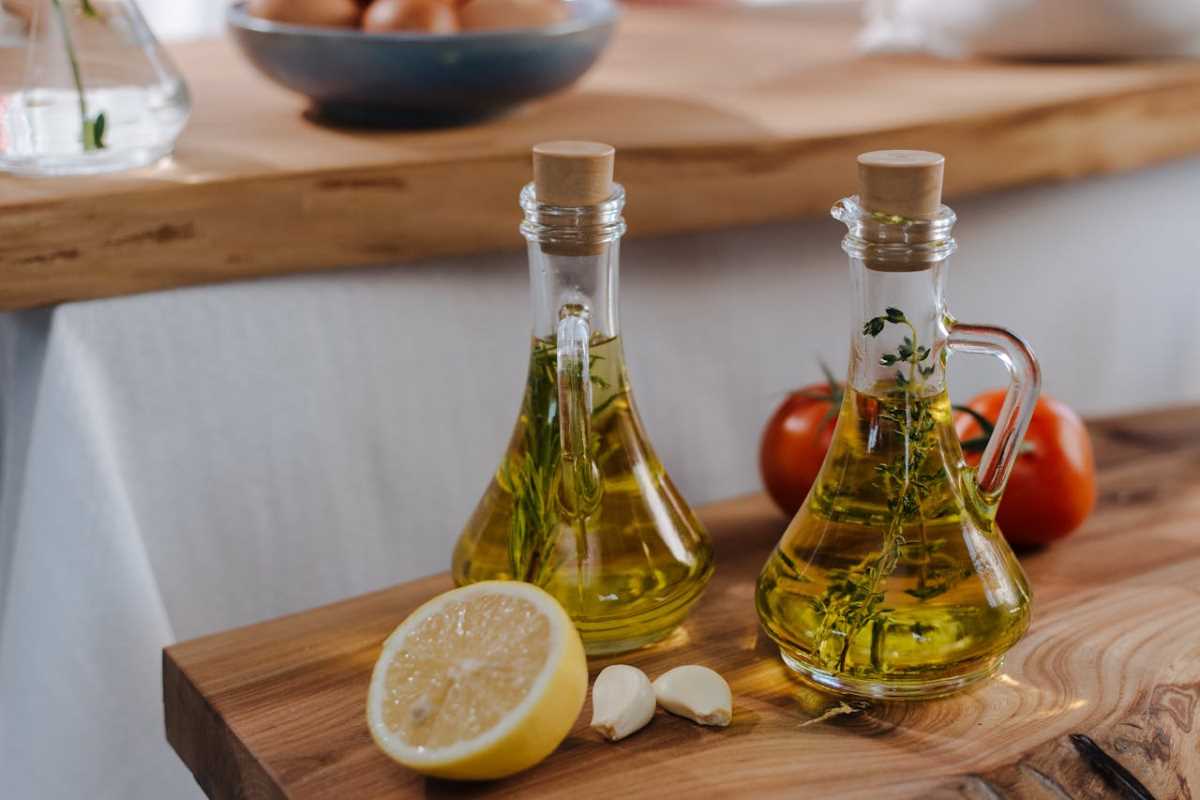Cooking oil is a staple in every kitchen, used for everything from sautéing vegetables to baking desserts. We often choose oils based on habit or what's on sale, without giving much thought to how they affect our health. However, the type of oil you cook with, and how you use it, can have a significant impact on your well-being. Some oils are fantastic sources of healthy fats, while others can contribute to inflammation and other health issues, especially when used improperly. Understanding the difference is a simple yet powerful way to support your health. We’ve got you covered with a clear guide to help you navigate the world of cooking oils and make the best choices for your kitchen.
Understanding Fats and Oils
Before we dive into specific oils, it's helpful to understand the basics of fats. Fats are essential nutrients that provide energy, support cell growth, and help your body absorb certain vitamins. They are categorized based on their chemical structure:
- Saturated Fats: These are solid at room temperature (like butter and coconut oil). They have been a topic of debate, but in moderation, they can be part of a healthy diet.
- Unsaturated Fats: These are liquid at room temperature and are generally considered heart-healthy. They come in two main types:
- Monounsaturated Fats: Found in olive oil, avocado oil, and nuts.
- Polyunsaturated Fats: Found in fatty fish, walnuts, and seeds. This category includes both omega-3 and omega-6 fatty acids.
The key to health is not just the type of fat but also the balance between different fats, particularly the ratio of omega-6 to omega-3 fatty acids. A modern diet often contains far too much omega-6 and not enough omega-3, a pattern that can promote chronic inflammation.
The Problem with Certain Cooking Oils
The issue with many common cooking oils isn't just their nutritional profile but also how they are processed and how they react to heat.
The Issue with Industrial Seed Oils
Many popular and inexpensive cooking oils, often called "vegetable oils," are extracted from seeds like soybeans, corn, canola (rapeseed), cottonseed, and sunflower. These are typically referred to as industrial seed oils. There are a few concerns associated with them:
- High Omega-6 Content: These oils are extremely high in omega-6 fatty acids. While your body needs some omega-6s, an excessive amount, especially without enough counterbalancing omega-3s, can lead to a pro-inflammatory state in the body. Chronic inflammation is linked to a host of health problems, including heart disease and metabolic issues.
- Heavy Processing: The extraction process for these oils often involves high heat and chemical solvents like hexane. This harsh processing can damage the delicate polyunsaturated fats, creating oxidized byproducts before the oil even reaches your kitchen. The oils are then often refined, bleached, and deodorized to make them palatable, further altering their natural state.
The Importance of Smoke Point
An oil's smoke point is the temperature at which it stops shimmering and starts to smoke. This is a critical factor to consider because when an oil is heated past its smoke point, it begins to break down. This chemical breakdown does two negative things: it releases harmful free radicals, and it creates a substance called acrolein, which is responsible for the unpleasant, burnt taste and smell.
Using an oil with a low smoke point for high-heat cooking (like searing or stir-frying) is a common mistake. This can introduce damaging compounds into your food and the air you breathe.
Cooking Oils to Limit or Avoid
Based on their fatty acid profile and processing methods, there are a few oils that are wise to use sparingly or replace with healthier alternatives. You have the power to make better choices for your health.
- Soybean Oil: Extremely high in omega-6 fatty acids, it is one of the most widely consumed oils in the modern diet and a major contributor to the imbalance of fatty acids.
- Corn Oil: Like soybean oil, corn oil is very high in omega-6s and is typically highly refined.
- Cottonseed Oil: This oil has a poor omega-6 to omega-3 ratio and has historically raised concerns due to pesticide levels in cotton crops.
- "Vegetable Oil" Blends: Vague labels like "vegetable oil" usually mean a blend of the cheapest available oils, most often soy or corn. It's best to choose oils where you know the exact source.
- Canola Oil: While often marketed as a healthy oil due to its monounsaturated fat content, most canola oil is highly processed and derived from a genetically modified crop. If you choose to use it, look for organic, cold-pressed versions.
Healthier Cooking Oils for Your Kitchen
Ready to make some simple swaps? We’ve got a list of stable, nutritious, and delicious oils that are fantastic for everyday cooking.
For High-Heat Cooking (Searing, Frying, Roasting)
These oils have high smoke points, making them stable and safe for high-temperature methods.
- Avocado Oil: With a very high smoke point (around 520°F or 271°C), a neutral flavor, and a great profile of monounsaturated fats, avocado oil is an excellent all-purpose choice for high-heat cooking.
- Ghee (Clarified Butter): Ghee is made by removing the milk solids from butter. This process gives it a high smoke point (around 485°F or 252°C) and a rich, nutty flavor. It's great for roasting and sautéing.
- Coconut Oil: Best for medium-high heat (smoke point around 350°F or 177°C), coconut oil is a stable saturated fat. Choose unrefined, virgin coconut oil for a mild coconut flavor or refined coconut oil for a neutral taste and slightly higher smoke point.
For Medium-Heat Cooking (Sautéing, Baking)
These oils are versatile and work well for most everyday cooking tasks.
- Extra Virgin Olive Oil (EVOO): A cornerstone of the heart-healthy Mediterranean diet, EVOO is rich in monounsaturated fats and powerful antioxidants called polyphenols. Despite old myths, high-quality EVOO is perfectly safe for sautéing, with a smoke point around 375°F (191°C). Its incredible flavor also makes it a star in its raw form.
- Sesame Oil: A staple in Asian cuisine, sesame oil has a moderate smoke point and adds a wonderful, nutty flavor to stir-fries and sauces. Toasted sesame oil has a lower smoke point and is best used as a finishing oil for flavor.
For Low-Heat or No-Heat Uses (Dressings, Drizzling)
These oils are more delicate and are best used raw to preserve their nutrients and flavor.
- Flaxseed Oil: This oil is an excellent plant-based source of omega-3 fatty acids. It has a very low smoke point and should never be heated. Use it in salad dressings, smoothies, or drizzled over finished dishes.
- Walnut Oil: Another good source of omega-3s, walnut oil has a delicate, nutty flavor that is wonderful in vinaigrettes. Like flax oil, it should not be heated.
- High-Quality Extra Virgin Olive Oil: A flavorful, high-polyphenol EVOO is the perfect finishing oil to drizzle over pasta, soup, or steamed vegetables just before serving.
 (Image via
(Image via





